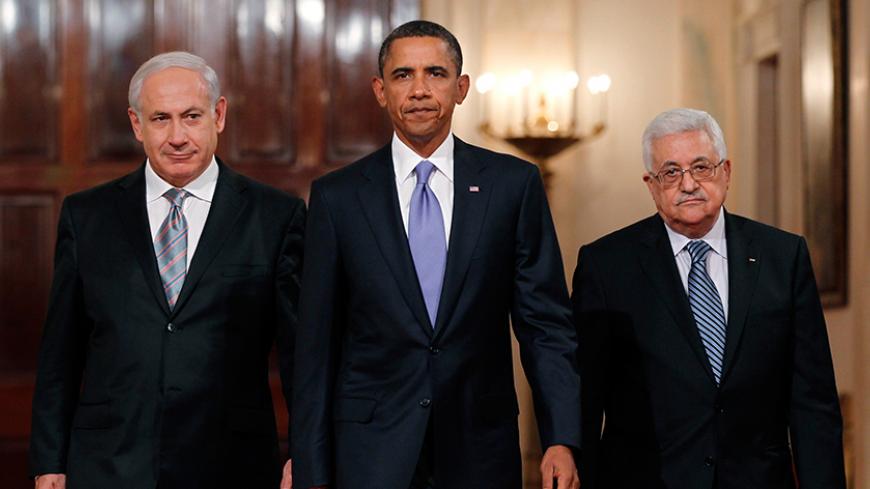US Secretary of State John Kerry came back from his recent trip to Jerusalem and Ramallah on Nov. 24 empty-handed and, for the first time for this extreme optimist, completely disillusioned with the stalled Israeli-Palestinian negotiations. He found Israeli Prime Minister Benjamin Netanyahu even more rejectionist than before, and Palestinian President Mahmoud Abbas weaker and more depressed. A senior US State Department official dealing with the Middle East described to Al-Monitor the current situation in very bleak terms. President Barack Obama’s administration is fearing that the lack of any horizon of hope for the Palestinians will turn the current chaotic violence into a more organized and violent intifada.
Speaking on condition of anonymity, the State Department official complained about the state of relations between Washington and Jerusalem: "The policy gap vis-a-vis the Netanyahu government is of a strategic nature. The prime minister sees the use of force as a necessary policy option in any regional crisis. The Obama administration sees the use of force as a last option, to be used only after serious diplomacy is exhausted. This was the case when negotiating the Iran deal. Now that the International Atomic Energy Agency has issued its report on Dec. 2 and concluded that, since 2009, Iran was not actively developing nuclear weapons, many in the administration ask what would have happened if the Republicans and Netanyahu would have had the upper hand in the congressional debate?” This, according to the source, is analogous to the past debate on the war in Iraq. Netanyahu backed then-President George W. Bush in the decision to go to war in the conviction that it would put an end to terrorism. The opposite was true; the Islamic State was born out of that war.



